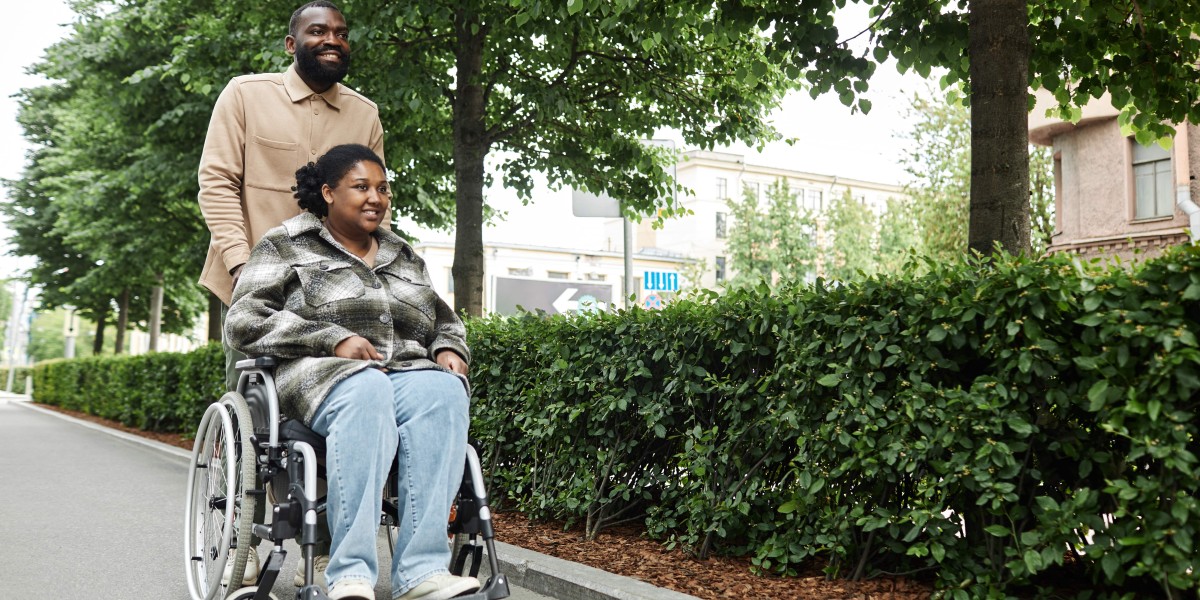Navigating the World of Mobility Scooters in the UK
Mobility scooters have become an important tool for many in the United Kingdom, providing a useful and dignified solution for people with mobility issues. These scooters not only enhance the quality of life for their users but likewise provide a sense of self-reliance and flexibility. This thorough guide aims to provide a summary of mobility scooters in the UK, including their benefits, types, purchasing factors to consider, and maintenance tips.
Introduction to Mobility Scooters
A mobility scooter is a battery-powered vehicle developed to assist people with walking problems or limited mobility to walk around more easily. Unlike manual wheelchairs, which need significant physical effort, mobility scooters are easy to operate and can be used both indoors and outdoors. They are particularly helpful for older adults and people with disabilities, enabling them to travel longer ranges and browse various surfaces with ease.

Benefits of Mobility Scooters
Independence and Freedom
- Mobility scooters empower users to take a trip independently, reducing the need for help from others.
- They can be utilized for day-to-day activities such as shopping, going to good friends, or participating in gatherings.
Affordable
- While there are preliminary costs, mobility scooters can be an economical option to other mobility aids, particularly gradually.
- Numerous designs are readily available for lease or lease, offering flexibility for users with varying requirements.
Comfort and Safety
- Scooters are designed with ergonomic seats and adjustable functions to ensure comfort during extended periods of use.
- Safety functions such as lights, horns, and braking systems boost user confidence and security.
Social Inclusion
- By enabling individuals to take part in neighborhood activities, mobility scooters promote social addition and reduce sensations of seclusion.
Health Benefits
- Routine usage of a mobility scooter can assist maintain physical health by encouraging users to stay active and engaged.
Types of Mobility Scooters
Mobility scooters in the UK be available in different types, each designed to accommodate different requirements and preferences:
Class 2 Scooters (Pavement Scooters)
- Speed: Up to 4 miles per hour
- Usage: Designed for use on pavements and within indoor areas
- Advantages: Compact and lightweight, perfect for brief ranges and everyday errands
Class 3 Scooters (Road and Pavement Scooters)
- Speed: Up to 8 mph on roads and 4 miles per hour on pavements
- Usage: Suitable for longer journeys and can be utilized on both roads and pavements
- Advantages: More robust and efficient in dealing with different surfaces, including rough surfaces and inclines
Off-Road Scooters
- Speed: Varies, but generally higher than Class 2 and Class 3 scooters
- Use: Designed for off-road usage, consisting of parks, trails, and irregular surface areas
- Benefits: Enhanced sturdiness and traction, ideal for adventurous users
Travel Mobility Scooters
- Speed: Varies, however normally approximately 4 mph
- Use: Portable and easy to take apart for transport
- Benefits: Perfect for users who travel regularly and need a portable solution
Purchasing Considerations
When buying a mobility scooter, several factors should be thought about to make sure the best suitable for the user's requirements:
User's Physical Condition
- Weight Capacity: Ensure the scooter can support the user's weight.
- Height and Reach: Choose a model that is adjustable to fit the user's height and reach easily.
Meant Use
- Indoor/Outdoor: Determine if the scooter will be used mostly inside your home, outdoors, or both.
- Terrain: Consider the kind of surface the user will browse, consisting of any hills or rough surface areas.
Battery Life and Range
- Battery Type: Lithium-ion batteries are usually more efficient and longer-lasting than lead-acid batteries.
- Variety: Check the scooter's range to ensure it fulfills the user's everyday travel needs.
Security Features
- Brakes: Look for scooters with dependable braking systems.
- Lights and Horns: Essential for presence and alerting others.
Warranty and Customer Support
- Warranty: Ensure the scooter includes an extensive guarantee.
- Customer Support: Choose a trustworthy producer with excellent client service and assistance.
Upkeep and Safety Tips
Appropriate upkeep is important to guarantee the longevity and safety of a mobility scooter:
Regular Battery Checks
- Charging: Always keep the battery charged to prevent deep discharge.
- Cleaning: Keep the battery compartment tidy and devoid of dirt and wetness.
Tire Maintenance
- Inflation: Regularly check and keep correct tire pressure.
- Inspection: Inspect tires for wear and damage, changing them as needed.
Clean and Lubricate
- Cleaning: Wipe down the scooter frequently to keep it totally free from dirt and gunk.
- Lubrication: Lubricate moving parts to prevent rust and ensure smooth operation.
Safety Checks
- Brakes: Test the brakes routinely to ensure they are functioning properly.
- Lights and Horns: Check that all safety functions are functional.
Follow Manufacturer Guidelines
- Manual: Refer to the user handbook for particular upkeep guidelines.
- Service: Schedule regular service checks with a certified technician.
Often Asked Questions (FAQs)
Can anyone utilize a mobility scooter?
- No, only people with a medical need or disability are qualified to utilize a mobility scooter on public roads and pavements in the UK. Nevertheless, they can be used by anybody on personal property.
Do I need a license to drive a mobility scooter?
- No, a license is not needed to use a Class 2 or Class 3 mobility scooter. Nevertheless, users should be over 14 years of ages and have a genuine requirement for the scooter due to a disability or medical condition.
How quick can a mobility scooter go?
- Class 2 scooters have a maximum speed of 4 mph, while Class 3 scooters can rise to 8 mph on roads and 4 mph on pavements.
Can I take a mobility scooter on public transport?
- Some public transportation, such as trains and buses, may allow mobility scooters, but it depends on the specific service and the size of the scooter. It's best to contact the transport company beforehand.
What is the life-span of a mobility scooter?
- With proper upkeep, a mobility scooter can last several years, typically between 5 and 10 years.
Can I get monetary support to buy a mobility scooter?
- Yes, financial help might be available through the Disabled Facilities Grant (DFG), regional authorities, or charitable organizations. Furthermore, some insurance providers might cover part of the expense.
Mobility scooters are a valuable aid for people with mobility issues in the UK, using a variety of gain from increased self-reliance to improved social involvement. By thinking about the user's needs, the intended use, and the scooter's features, one can pick the ideal design to improve their quality of life. Regular maintenance and adherence to security standards are important to ensure the scooter stays a dependable and safe mode of transport. For those who certify, monetary help may be readily available to make the purchase more inexpensive. Whether for everyday usage or periodic trips, a mobility scooter can considerably improve the user's ability to browse the world with confidence and ease.
Extra Resources
- Mobility Aids UK: An extensive directory of mobility help and scooters.
- NHS Choices: Information on mobility aids and monetary help.
- Disability Living Allowance (DLA): Guidance on applying for financial assistance for disability-related expenditures.
By exploring these resources and considering the points outlined in this guide, people can make an educated decision about buying and utilizing a mobility scooter in the UK.








